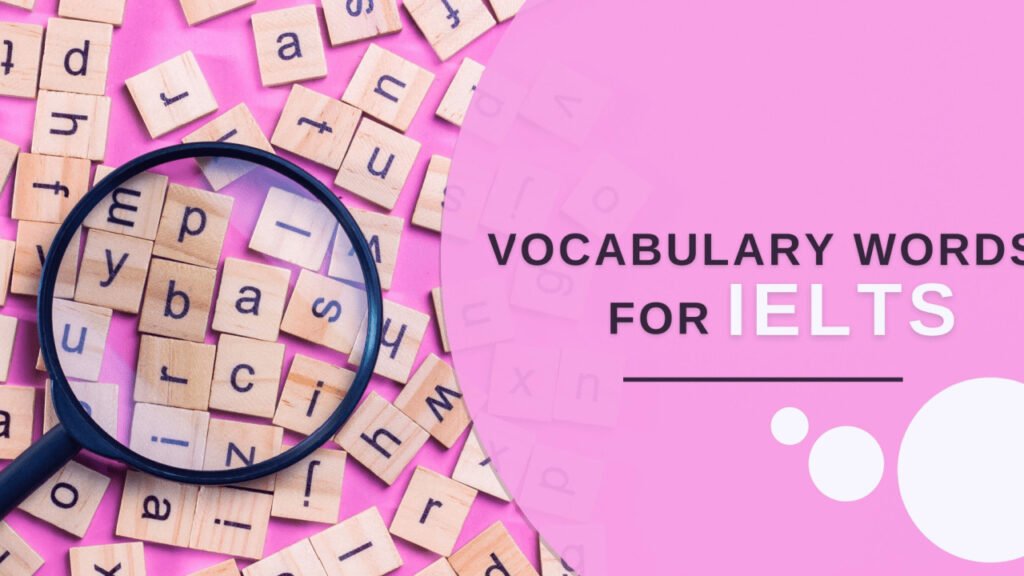Blog
Vocabulary for IELTS
- April 14, 2025
- Posted by: hengameh
- Category: English

Words You Must Know
Vocabulary is an essential aspect of the IELTS test, and it plays a significant role in improving your score, especially for those who have previously achieved a score of 6.5 in speaking and writing. The more varied and precise your vocabulary, the higher your chances of scoring a 7 or above. In this article, we’ll go over some of the most important IELTS vocabulary words that you must know to enhance your writing and speaking scores.
1. Describing People and Emotions
When talking about people or emotions, it’s essential to use descriptive words that go beyond the basic adjectives. Instead of using simple words like “happy” or “sad,” use more advanced vocabulary such as:
Ecstatic (very happy)
Melancholy (very sad)
Reluctant (unwilling)
Optimistic (hopeful about the future)
By using these words, you will show the examiner that you can express emotions and descriptions in a more complex and sophisticated way.
2. Talking About Problems and Solutions
Many IELTS questions require you to discuss problems and propose solutions. Here are a few useful words and phrases that you can use to elevate your responses:
Dilemma (a situation where a difficult choice must be made)
Impose (to force something on someone)
Mitigate (to reduce the severity of a problem)
Address (to deal with a problem)
By using these words, you can demonstrate a broader vocabulary, making your response sound more polished and professional.
3. Describing Processes and Changes
When explaining processes or changes, a wide variety of vocabulary will help you sound more fluent. Some words to know include:
Evolve (to develop gradually)
Transform (to change completely)
Accelerate (to increase speed)
Revolutionize (to change something radically)
These words will be especially useful in writing Task 1, where you may need to describe trends and processes.
4. Discussing Opinions and Arguments
IELTS writing and speaking often require you to present your opinion or argument. To sound more professional, use the following vocabulary:
Argue (to present a reason or point of view)
Assert (to state something with confidence)
Justify (to show why something is reasonable or right)
Dispute (to argue against a claim or idea)
These words help strengthen your ability to discuss your point of view in a convincing and clear manner.
5. Improving Your Word Range
Using a wider variety of vocabulary can also help you avoid repetition in your writing and speaking. Try learning synonyms for common words to make your language more dynamic. For example, instead of using “important” repeatedly, try:
Crucial
Vital
Significant
Indispensable
Having a wider range of vocabulary will not only make your language sound richer but also help you achieve a higher band score.
